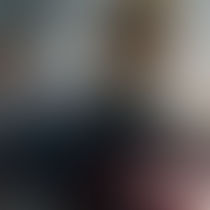But I would miss them
- Gil Reich
- Sep 27, 2015
- 3 min read
I finally understood the last line of the Book of Jonah this year, and it’s changed my Yom Kippur and will change my Sukkot. G-d gives the depressed Jonah a plant that shields him from sun. Then He kills it. When Jonah gets sadder, G-d essentially says, “You had mercy on the plant with whom you had only a fleeting relationship, and I shouldn’t have mercy on the people and animals of Nineveh with whom I had a deeper relationship?” My understanding had been blocked by my Maimonidean rationalist view of G-d. I had presumed He was making a reasoned moral argument about the importance of mercy, countering Jonah’s truth and justice argument that G-d should have destroyed Nineveh instead of encouraging them to repent. G-d’s response, I now understand, is essentially “But I would miss them.” We read Jonah on Yom Kippur, and my new interpretation changed my attitude during prayers yesterday. I’d frequently stop, smile and think “You know You’d miss me.” Sometimes I’d supplement that thought with “You know You like me most when I’m full of life, energy and inspiration. Let’s make that work.” Or on a more dour note, “You loved the people of Nineveh then. I know it’s our job to help the people of the Middle East today. But we’re failing, badly. Don’t You miss them? Please help us.” One (of many) lines that we repeat 23 times on Rosh Hashannah and Yom Kippur is “And may we all act as one to do Your will with a full heart.” Rabbi Tzahi Lehman taught me that it doesn’t mean “Please let other people see the light and understand things the way I do. And as a bonus, let them realize that I’m always right.” It means I too must be open to new understandings. Which is too bad, ’cause I liked the first interpretation. This Rosh Hashannah may have been the first where I thought from the outside in. Started with “G-d, did You take last year off?” thinking mostly of Syria. From the global and regional level, I got to the national (Israeli) level of “please help us through this difficult year, so that we may survive and serve You and help others.” As we transition to Sukkot, I’m reminded that we’re a strange combination of universal and tribal religion. We introduced the concept that there are absolute moral truths that apply to us all, and indeed a brotherhood of man. But we’ve also maintained the tribal side with our own laws and customs that bind us to G-d and to each other. All are welcome to join the tribe, but we’re just as happy to move forward with fellow travelers with whom we share a commitment to advancing life, liberty and human happiness. As Sukkot comes in, I’ll contrast the Sukkah to Jonah’s plant. Both provide shade. But whereas Jonah’s plant just appeared, I built the Sukkah with my family, for the purpose of performing G-d’s commandment and connecting with G-d, Jews and Judaism. Whereas Jonah sat under the shade seething about G-d saving Nineveh, we’ll discuss how Sukkot is the holiday where we remember that part of our purpose as a nation is helping other nations. How we help others in today’s Middle East without threatening our existence as a nation is an open question. But the principle is well established: We’re here not only to help our fellow members of the tribe but also to help others. May 5776 be better a year for us all.
I’d like to wish you all a wonderful Sukkot and a fantastic new year.
Recent Posts
See AllKohelet (Ecclesiastes) is best understood in the negative space, in the missing voices. Kohelet is a choir of voices trying to make...
Like the blind man who was handed a piece of matzah, I read Kinot (Lamentations) and wonder “Who writes this sh*t?” Starving mothers...







